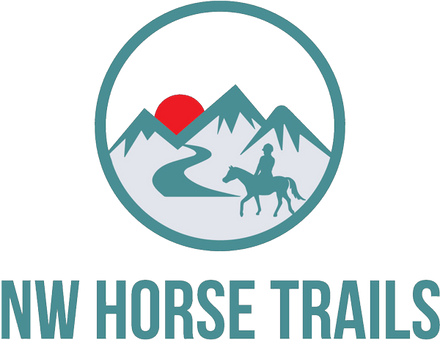I’ve been riding in Central Oregon for many years, and though I’ve ridden various parts of the Metolius-Windigo Trail a thousand times, I’d never really thought about through-riding this iconic 150-mile trail. I don’t have a pack horse, so I didn’t think it was possible.
Then a friend pointed out to me that if backpackers can carry everything they need on their backs, surely our horses can do the same. We just had to figure out the best way to do it. So we started doing some research, and yes, it turns out you CAN pack without a pack horse!
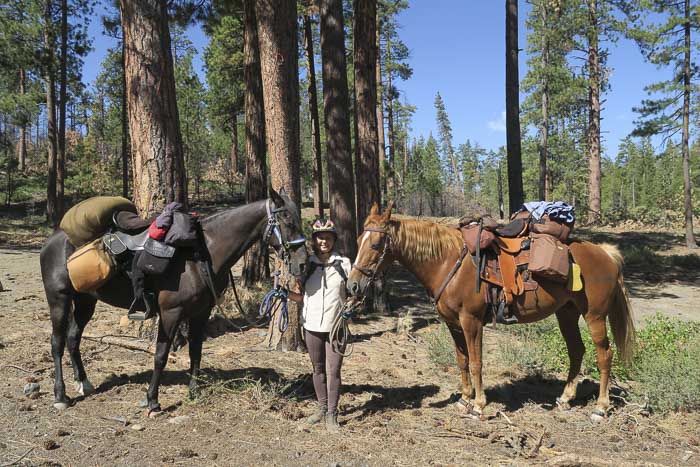
The challenge, of course, is that while your horse can carry your sleeping bag, tent, food, and water, there’s no way a horse can carry all the food they need for a multi-day trip. You either need to camp where you have water and grazing for your horse, or you need to make other arrangements.
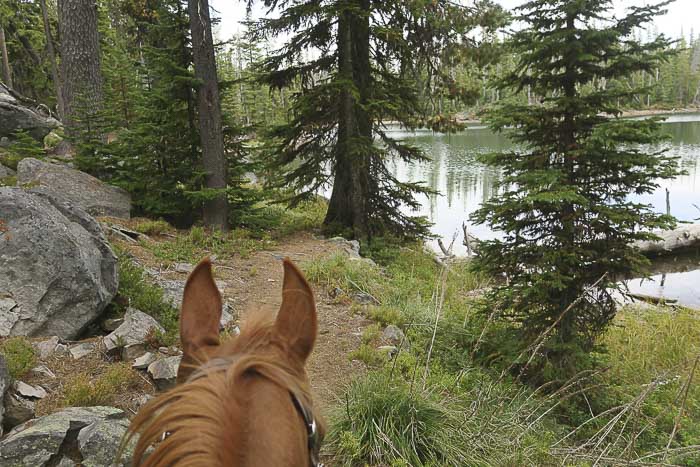
Since the Metolius-Windigo Trail (the Met-Win for short) has very limited grazing opportunities along its length, “other arrangements” is the operative term. If you plan to through-ride this trail, you will need to drive out ahead of your ride and drop off hay at each of your planned campsites.
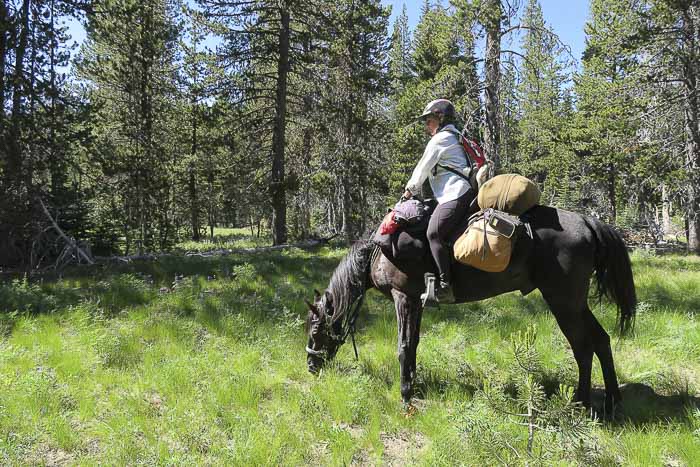
You’ll also need to plan your campsites around water sources. On the southern one-third of the Met-Win, water sources are limited, and some of these dry up in late summer.
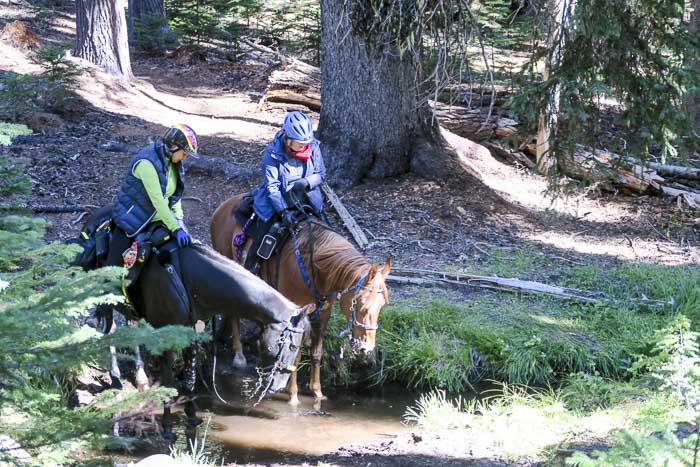
A complicating factor is that some stretches of the Metolius-Windigo Trail don’t show up on any maps. None!
That said, through-riding the Metolius-Windigo is the experience of a lifetime. If you plan your trip and you’re prepared, you’ll have a fabulous time!
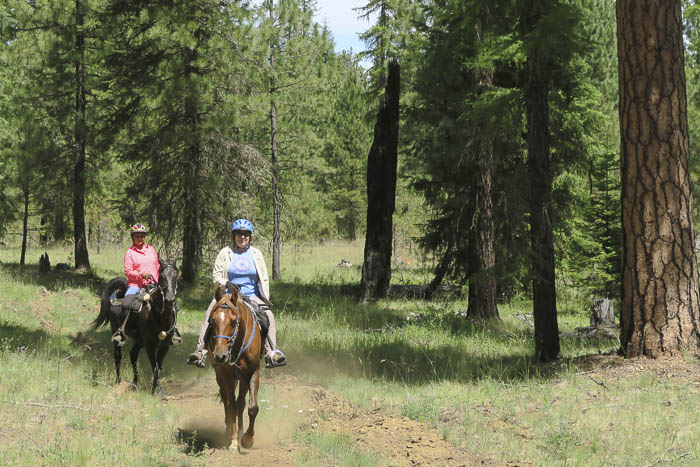
The Back Story
The Met-Win Trail was created in the late 1970s and early 1980s to provide equestrians with a lower-elevation alternative to the Pacific Crest Trail. It runs 152 miles through Central Oregon along the east slope of the Cascades. The Met-Win extends from the Metolius Basin near the southern edge of the Mt. Jefferson Wilderness to Windigo Pass on the south side of the Diamond Peak Wilderness. It connects with the Pacific Crest Trail on both ends.
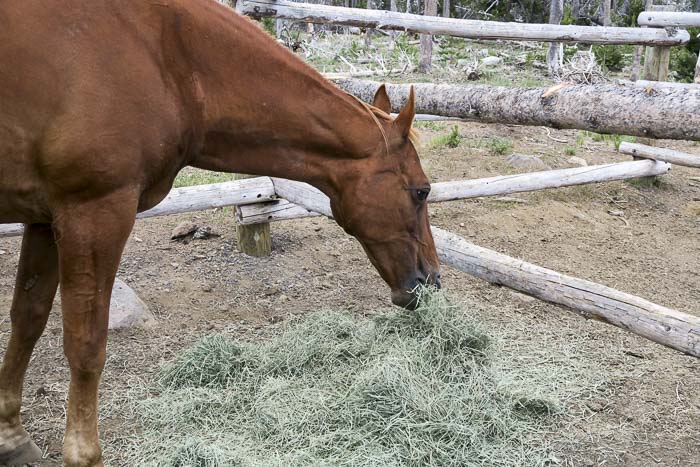
Eight horse camps are dotted at intervals along the trail, so at least some of your overnight stops will feature toilets, corrals, and readily-available stock water. Most of the horse camps are clustered on the northern two-thirds of the trail, however. The rest of the time, you’ll be highlining your horses in the trees, digging cat holes for your bathroom breaks, and reveling in the complete solitude that comes from being away from civilization.
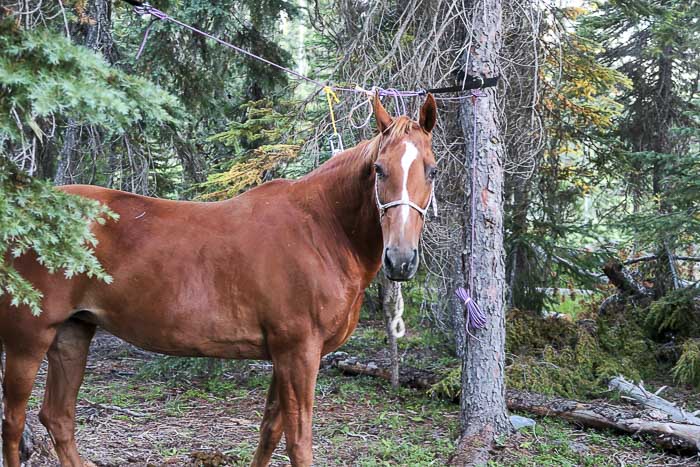
More Information
If you’re planning to ultralight pack on the Metolius-Windigo Trail, you’ll need to know where to find the best campsites, how to prepare for your trip, what to carry, and what to expect on the trail. Our guidebook, Riding The Metolius-Windigo Trail, tells you all this and much more. The book includes 27 detailed maps, along with helpful mile-by-mile descriptions of the trail.
